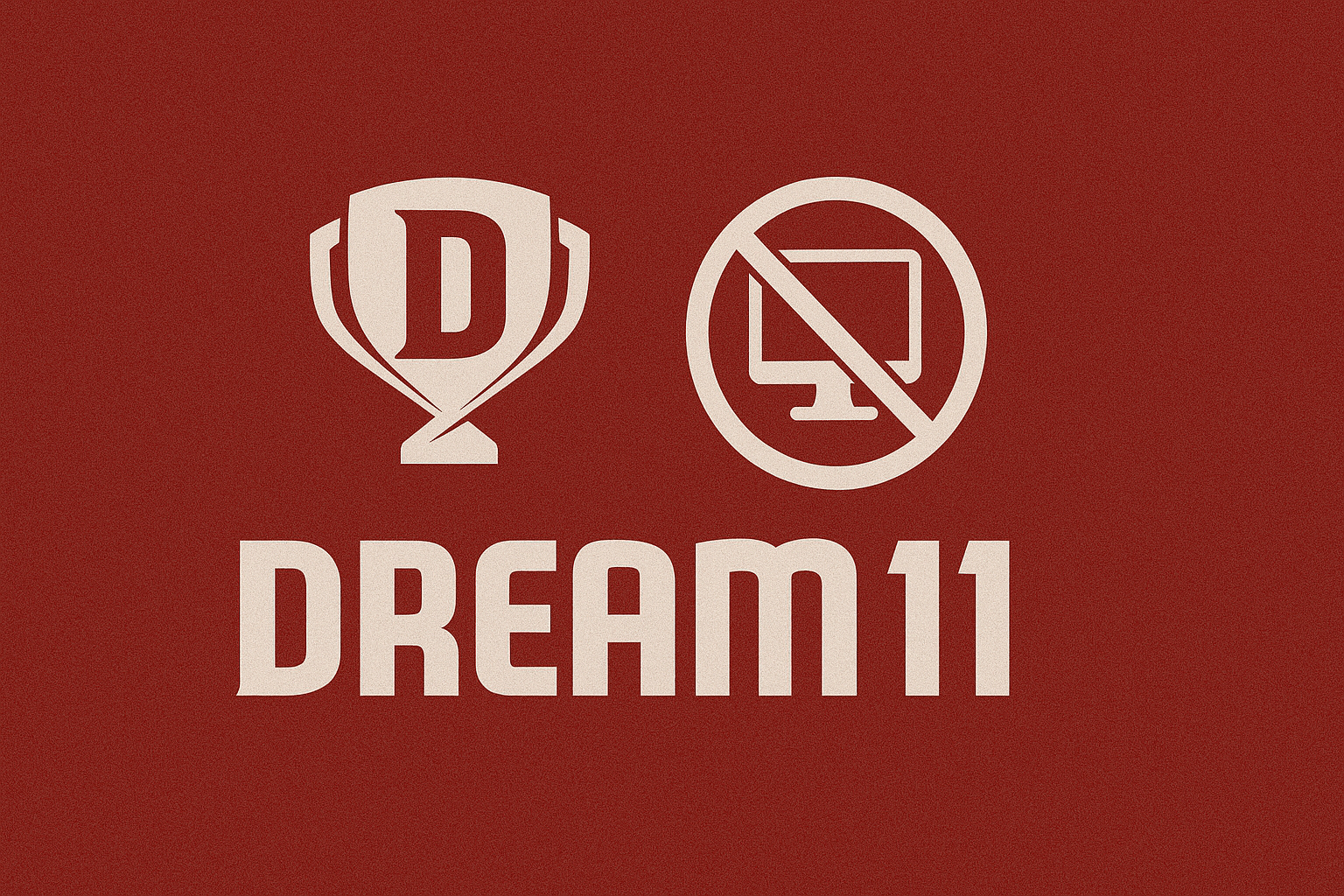
Dream11 Halts Real-Money Gaming After Online Gaming Bill 2025, Layoffs Loom Over Industry
When the Indian Parliament passed the Online Gaming Bill 2025, the message was unambiguous: the era of real-money gaming in India has ended. And the first domino has fallen. Dream11, the flagship fantasy sports platform of Dream Sports, has decided to shut down its core real-money gaming (RMG) operations, effectively dismantling the business model that powered its meteoric rise over the last decade.
The decision comes with both immediate and long-term consequences. Immediate because it strikes at the heart of Dream11’s revenue engine—RMGs reportedly account for over two-thirds of the company’s annual earnings. Long-term because it forces a structural shift not just within Dream Sports but across India’s gaming ecosystem.
From Cricket Stadiums to Courtrooms
Dream11 became synonymous with fantasy sports during the IPL years, its advertisements dominating cricket stadiums and television screens. But with the new Bill, fantasy leagues—once marketed as “games of skill”—have been legislatively bracketed alongside betting and chance-based games. The law bans any online game involving monetary stakes, making no distinction between formats.
For violators, the penalties are harsh: up to three years in jail, fines of ₹1 crore, and extended accountability for advertisers and financial intermediaries. That means even banks, payment processors, and marketing agencies that support these platforms can be punished.
Company Response: Balances Safe, Future Uncertain
Dream Sports has assured users that their existing account balances remain safe and can be withdrawn without restrictions. This assurance seeks to avoid panic withdrawals and reputational damage at a time when trust is fragile.
But the deeper challenge lies in jobs. A significant chunk of Dream Sports’ workforce is tied to its RMG vertical. With the closure, mass layoffs appear inevitable, though the company has not yet confirmed specifics. The silence is telling: in moments of regulatory upheaval, companies often speak less, not more.
When contacted for comments, Dream11 declined to elaborate, only stating:
“At this stage, we don’t have a comment to share. Should we have a point of view or updates that we can provide, we’ll be sure to let you know.”
Pivoting to Survive
If the RMG door is closed, Dream Sports hopes to push through new windows. The company has already highlighted ventures such as FanCode (sports streaming), DreamSetGo (sports travel), Sportz Drip (merchandising), and Dream Game Studios (casual gaming). These verticals are not just diversification—they are survival strategies.
The company is also exploring international expansion, targeting markets where real-money gaming is still legal. However, international forays are never quick fixes. They require new partnerships, regulatory compliance in each jurisdiction, and significant capital investment.
What It Means for India’s Gaming Industry
Dream11’s retreat signals more than just a corporate setback—it marks a structural reset for the Indian gaming industry. For years, startups and investors poured money into real-money formats, betting on favorable legal interpretations of “games of skill.” The Online Gaming Bill has now closed that debate decisively.
Startups dependent on fantasy sports or poker-style formats will face existential threats.
Jobs across technology, marketing, and operations will shrink.
Investors may redirect funds to adjacent industries such as esports, gamified content, or global expansions.
At the same time, the Bill underscores a philosophical divide: is gaming primarily entertainment, or is it gambling in disguise? Parliament has taken the latter view, prioritizing social safeguards over entrepreneurial growth.
End of an Era, or Beginning of Another?
For Dream11, this moment feels like the end of an era—the fantasy sports juggernaut that once defined an entire category is now legally restrained from its core business. For India, it represents the state’s determination to draw a red line between recreation and risk.
But history suggests that industries adapt. The closure of one model often seeds innovation in another. Whether Dream Sports can pivot successfully—and whether other gaming firms can reinvent themselves—will determine the future shape of digital play in India.
For now, what remains clear is that Dream11’s fantasy has collided with the reality of regulation.



